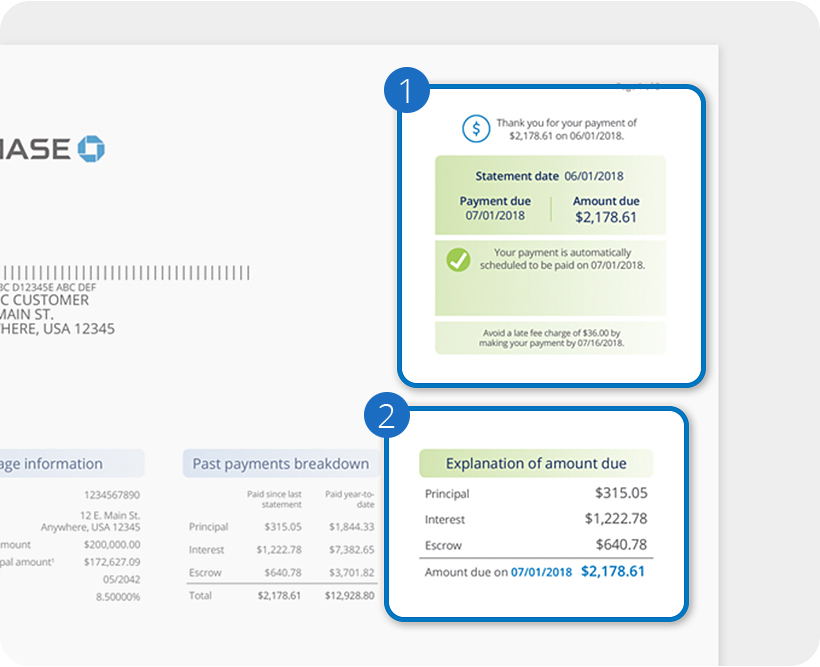Chase Mortgage Guide: FHA, VA Loans & More!
Are you dreaming of owning a home but feel overwhelmed by the financial hurdles? The journey to homeownership is within reach, and understanding your mortgage options is the first step towards unlocking that dream.
Navigating the complexities of mortgages can feel like traversing a maze. The landscape is filled with jargon, fluctuating interest rates, and a multitude of loan options. But with the right knowledge and resources, the path to homeownership becomes clearer and more manageable. This article provides an overview of mortgage options, focusing on offerings that cater to diverse financial situations. We will explore the different types of loans, understand the associated terms, and learn about resources designed to guide you through the process.
Whether you're a first-time homebuyer or a seasoned property investor, choosing the right mortgage is crucial. It impacts not only your monthly payments but also your long-term financial well-being. Let's delve into the details and equip you with the information you need to make informed decisions.
Mortgage Options and Resources
One of the most common questions prospective homebuyers have is, "Where do I even start?" Fortunately, resources are available to simplify the process. For instance, consider the offerings from institutions like Chase Mortgage. They offer a range of services designed to support you at every step. This includes affordable lending options such as FHA loans and VA loans, designed to make homeownership accessible. They also provide resources like an affordability calculator and information about homebuyer grants in your area, which can significantly reduce the financial burden.
The Chase MyHome platform, for example, streamlines the mortgage process, from application to management. The Mortgage Education Center offers helpful tips and insights. By leveraging these tools, you can gain a solid understanding of the mortgage process.
Conventional Loans
Conventional loans are a popular choice among borrowers. These loans are not backed by the federal government, and they generally require a higher credit score and down payment than government-backed loans like FHA or VA loans. There are primarily two types of conventional loans: conforming and non-conforming.
Conforming loans adhere to the lending rules set by the Federal National Mortgage Association (Fannie Mae) and the Federal Home Loan Mortgage Corporation (Freddie Mac). These rules specify loan amounts and other eligibility requirements, helping ensure the loan is marketable in the secondary mortgage market. This often translates to lower interest rates for borrowers who qualify.
Non-conforming loans, on the other hand, do not meet the criteria set by Fannie Mae and Freddie Mac. An example of a non-conforming loan is a jumbo loan, which is designed for more expensive properties, often exceeding the loan limits set by the conforming loan guidelines. The maximum amount for a jumbo loan at Chase can reach $9.5 million, but qualification often requires a higher minimum credit score and a more significant cash reserve.
Government-Backed Loans
Government-backed loans, such as FHA and VA loans, offer flexibility and can be a great option for borrowers who may not qualify for conventional loans. FHA loans, backed by the Federal Housing Administration, are often favored by first-time homebuyers due to their low down payment requirements and more flexible credit score guidelines. VA loans, guaranteed by the Department of Veterans Affairs, are available to eligible veterans, service members, and surviving spouses, and often come with no down payment requirements and competitive interest rates.
When choosing between loan types, carefully evaluate your financial situation, credit score, and down payment capabilities. Consider the long-term implications of each loan option, and don't hesitate to seek professional advice from a mortgage expert.
Refinancing Your Mortgage
Refinancing your mortgage involves replacing your existing loan with a new one, potentially to secure a lower interest rate, change the loan term, or access cash. However, the amount you save on a refinanced mortgage can vary. If the refinanced mortgage has a longer term than your current loan, you will incur additional interest charges over the extended term. Recasts, which allow you to adjust your monthly payments by making a large principal payment, are not available for government loans like FHA, VA, and USDA loans.
Before refinancing, assess your current loan's terms, the prevailing interest rates, and your financial goals. Ensure your loan is in good standing when requesting a recast, and be aware that lenders retain the right to discontinue recasts at any time.
Homebuyer Grants and Assistance Programs
Many areas offer homebuyer grants to assist with down payments, closing costs, and other expenses. For instance, the Chase Homebuyer Grant is available for primary residence purchases in select areas and can provide savings of $2,500 or $5,000. The grant is first applied to reduce your interest rate, then towards Chase fees, other fees, or potentially your down payment, and it doesn't need to be repaid. Explore available grants and programs in your specific area to maximize your savings and make homeownership more affordable.
The Home Buying Process
Buying a home involves several crucial steps, each requiring careful consideration. Start by determining how much house you can afford, then obtaining pre-approval for a mortgage, which gives you a clear understanding of your budget and strengthens your negotiating position. Once you've found a property, you'll need to estimate your monthly payment using a mortgage calculator and finalize the loan terms. This can involve reviewing current mortgage rates and comparing loan options to choose the best fit for your needs.
The home-buying process also includes an appraisal, the assessment of the property's value. Keep in mind that the appraisal report is a crucial part of the process. It's wise to seek professional guidance from a real estate agent and a mortgage lender to navigate each step successfully.
Prefabricated Housing
Prefabricated housing, or prefab housing, is built in a factory before being placed on your property. This approach can potentially lead to cost and time savings compared to traditional construction methods. Explore the benefits and considerations of prefab housing if you are looking for an alternative to a traditionally built home.
Understanding Mortgage Terminology
Understanding mortgage terminology is critical for making informed decisions. Loan term shows the number of years it will take to pay off the loan with the minimum scheduled payments. The loan type refers to the specific kind of mortgage you choose. Comparing mortgage loan options involves evaluating factors like interest rates, loan terms, down payment requirements, and lender fees. Utilizing a mortgage loan calculator can help estimate monthly payments and overall loan costs. Certain income requirements must also be met, depending on the loan type and lender. Make sure you're well-versed in all the important terms.
General Information
These articles serve educational purposes and provide general mortgage information. Products, services, processes, and lending criteria described may differ from those available through JPMorgan Chase Bank N.A. or any of its affiliates. Any information described in this article may vary by lender, so it's essential to check the specifics with your chosen mortgage provider.
Finding the Right Mortgage for You
Selecting the ideal mortgage is a significant decision that can impact your finances for years to come. The best mortgage for you will depend on your unique financial circumstances, including your credit score, the amount you're looking to borrow, and the location of the property. When choosing, review current mortgage rates and tools, and consider factors such as loan terms, down payment needs, and lender fees. With careful consideration and available resources, you can make a well-informed decision.


